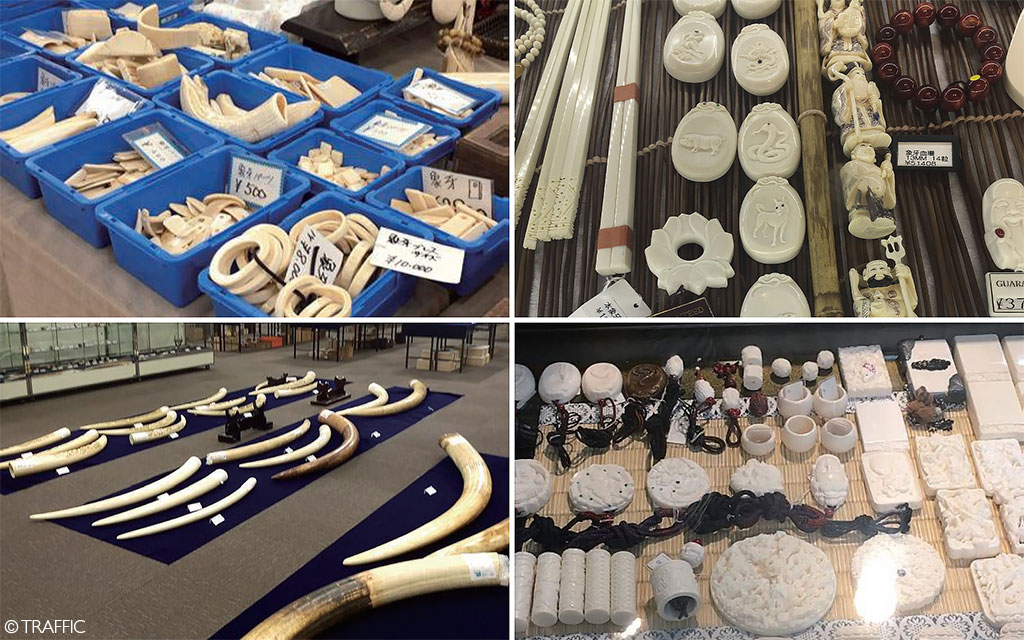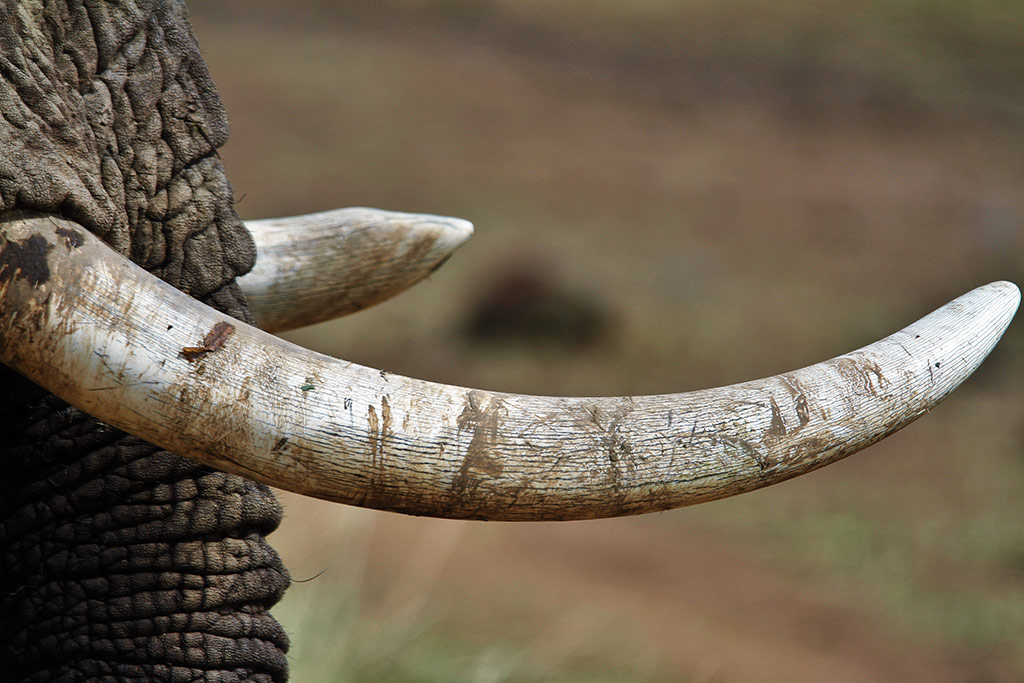Japan is failing to regulate its domestic ivory market, resulting in the perfect cover for illegally imported ivory and a supply source for illegal export. This is according to a new report compiled by the non-profit organisation, the Japan Tiger and Elephant Fund (JTEF). The report challenges the Government of Japan’s (GoJ) claim that “Japan has been implementing stringent measures to ensure that its domestic ivory market is not contributing to poaching or illegal trade”, calling it “flawed and unjustified”.
In 2016, the state parties to the Convention on International Trade in Endangered Species of Wild Fauna and Flora (CITES) adopted a resolution calling for those member states with a legal domestic ivory market to take urgent measures to close the commercial trade. Three years later, at the next Conference of the Parties, those states (including Japan) that opted not to do so were requested to report to the Secretariat on the measures taken to ensure that these domestic ivory markets were not contributing to poaching or illegal trade.
Japan remains the world’s most significant open ivory market. In response to the CITES request, the Government of Japan issued a firm assurance that these measures were in place, pointing to controls such as the stringent oversight of dealership registration, the compulsory registration of whole tusks and the use of carbon dating to determine tusk origin. However, the comprehensive 22-page report from the JTEF gives detailed examples of how these measures have failed in their supposed purpose.
In summary, findings of the JTEF report include:
- The persistent illegal ivory exports from Japan result from the country’s authorised legal market selling many different ivory items.
- The compulsory registration of ivory dealers (or renewal thereof) should involve a rigorous examination of eligibility – something the Government of Japan claims is done. However, the JTEF contends that this examination is, in reality, non-existent and does not preclude the registration of problematic dealers.
- The requirement to register all whole tusks was successfully bypassed as registered dealers simply cut them into pieces and processed them into Hanko (traditional signature stamps).
- The use of carbon dating to increase scrutiny for whole tusk registration came too late, and a vast number of tusks with unknown origin and acquisition have been legalised and entered the market.
- Despite assurances of traceability, the report indicates that there is no official verification on the legality of origin and acquisition at the point of production for ivory cut pieces and products, making traceability impossible.
- Closing the domestic legal market may be the only way to eliminate the significant trade loopholes.
- The influence of Japan’s buoyant domestic ivory market on the international community’s goal of preventing illegal international ivory trade should not be downplayed.

Each chapter of the report is dedicated to one of the measures supposedly set to prevent Japan’s legal market from contributing to the illegal trade in ivory. For example, the first chapter delves into how, despite “rigorous examination”, dealership registration is granted or renewed for kingpins in the ivory market, even when these companies have a recent-track record of illegal ivory trade.
The second chapter deals with the requirement for all whole tusks to be registered before they are involved in any transactions. The registration process requires identifying each tusk’s legal origin and acquisition. According to the JTEF, the dealers predicted the 2019 tightening of tusk registration ahead of time. Given that the law only requires that whole tusks are registered, traders rushed to take advantage of the loophole by cutting registered and unregistered tusks. Unregistered stockpiles are posed as registered stockpiles using the registration cards of those already consumed.
The report also claims that carbon dating to examine tusks upon registration was intentionally delayed. As a result, tusks of unknown but questionable origin were legalised and entered the market before carbon-dating analysis may have exposed their background.


The authors of the JTEF report conclude that not only has the Government of Japan failed to regulate the domestic ivory market, but these failures are systemic and consistent and have left the market open to the illegal trade in tusks. They call upon Japan to end all ivory trade as a matter of urgency, stating that the “stockpile is vast and the market remains tireless”.
A few weeks after the release of the JTEF report, the Standing Committee of CITES agreed that countries must continue to report on their domestic ivory markets. The EU has also called for an analysis of whether ivory seizures connected to countries that have not closed their domestic ivory markets may influence illegal international trade – a call echoed by Gabon.
Resources
For more on the extent of Japan’s ivory trade, you can watch the video of shocking evidence of Japan’s dirty ivory trade.
For more on how ivory Hanko stamps became popular, read Elephant ivory and the Japanese Hanko stamp.
And finally, read about how TRAFFIC and the WWF have also called for the closure of Japan’s ivory market.
The full report from the Japan Tiger and Elephant Fund can be accessed here: Sakamoto, M., (2022), ‘Japan’s Tireless Ivory Market: A Trader’s Haven Free of Strict Control‘, Japan Tiger and Elephant Fund.
To comment on this story: Login (or sign up) to our app here - it's a troll-free safe place 🙂.![]()






